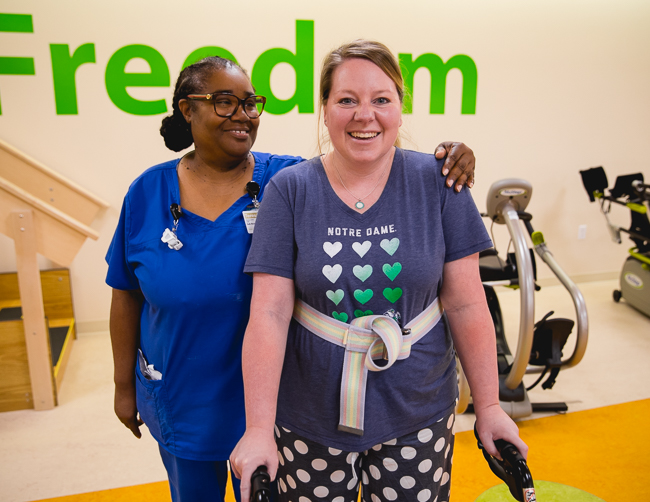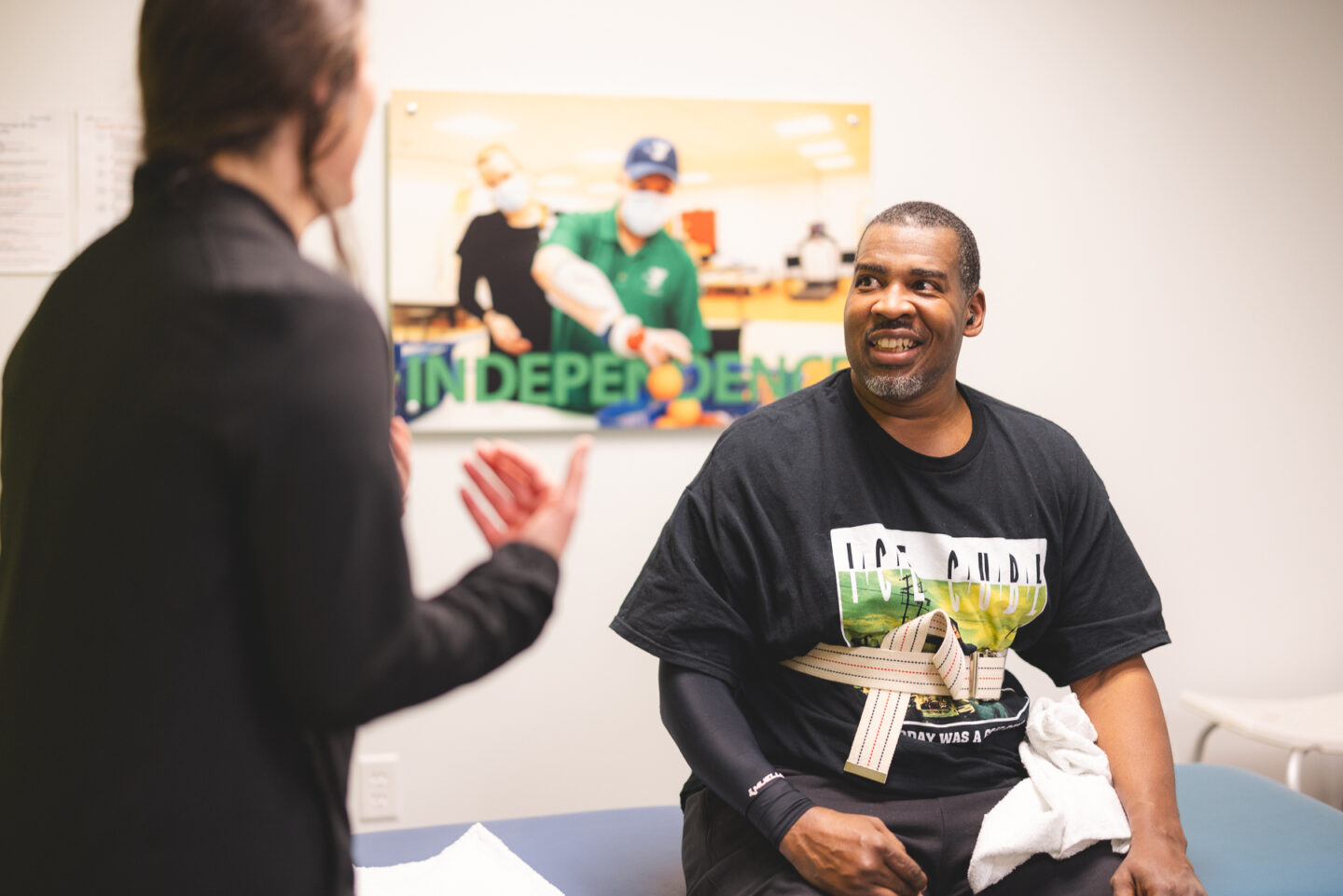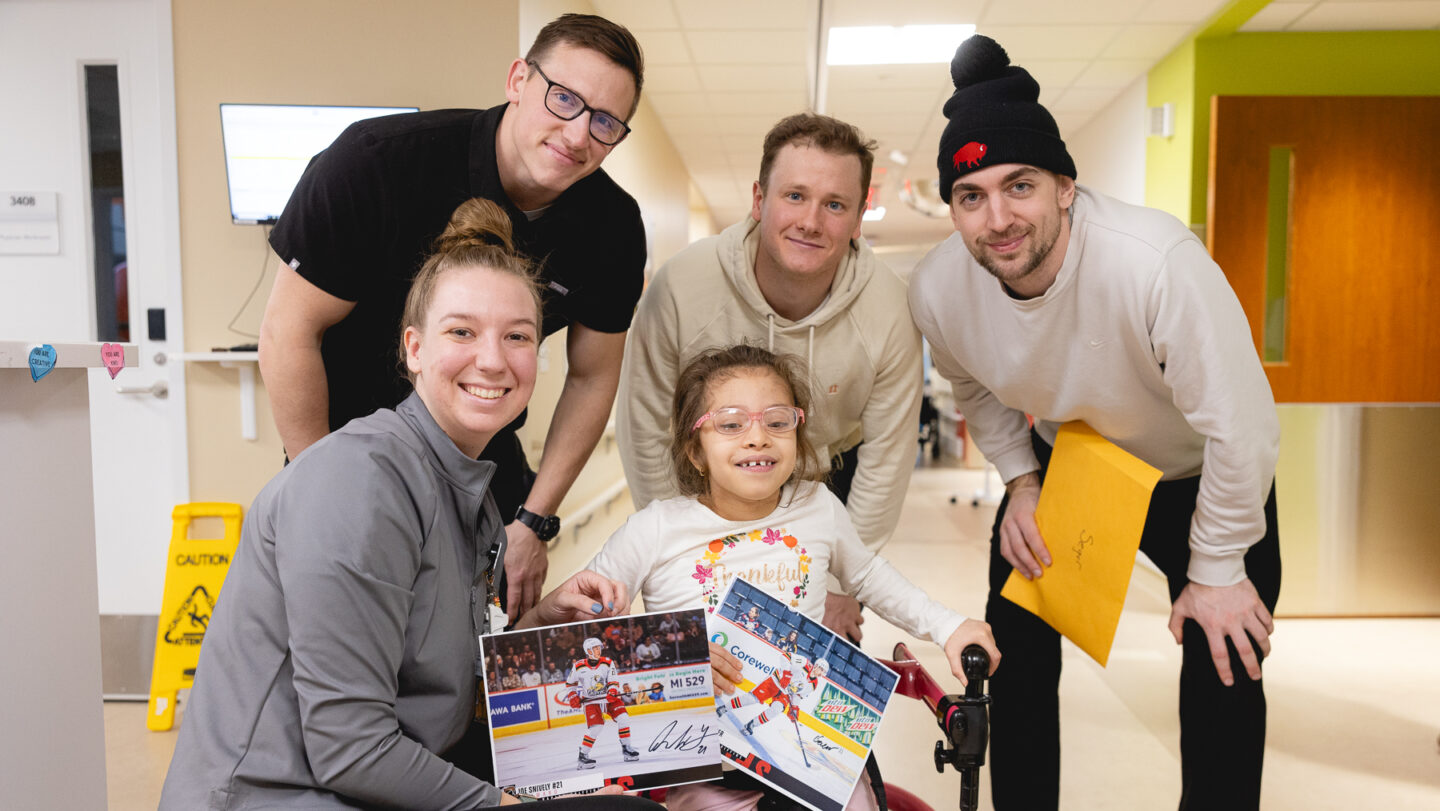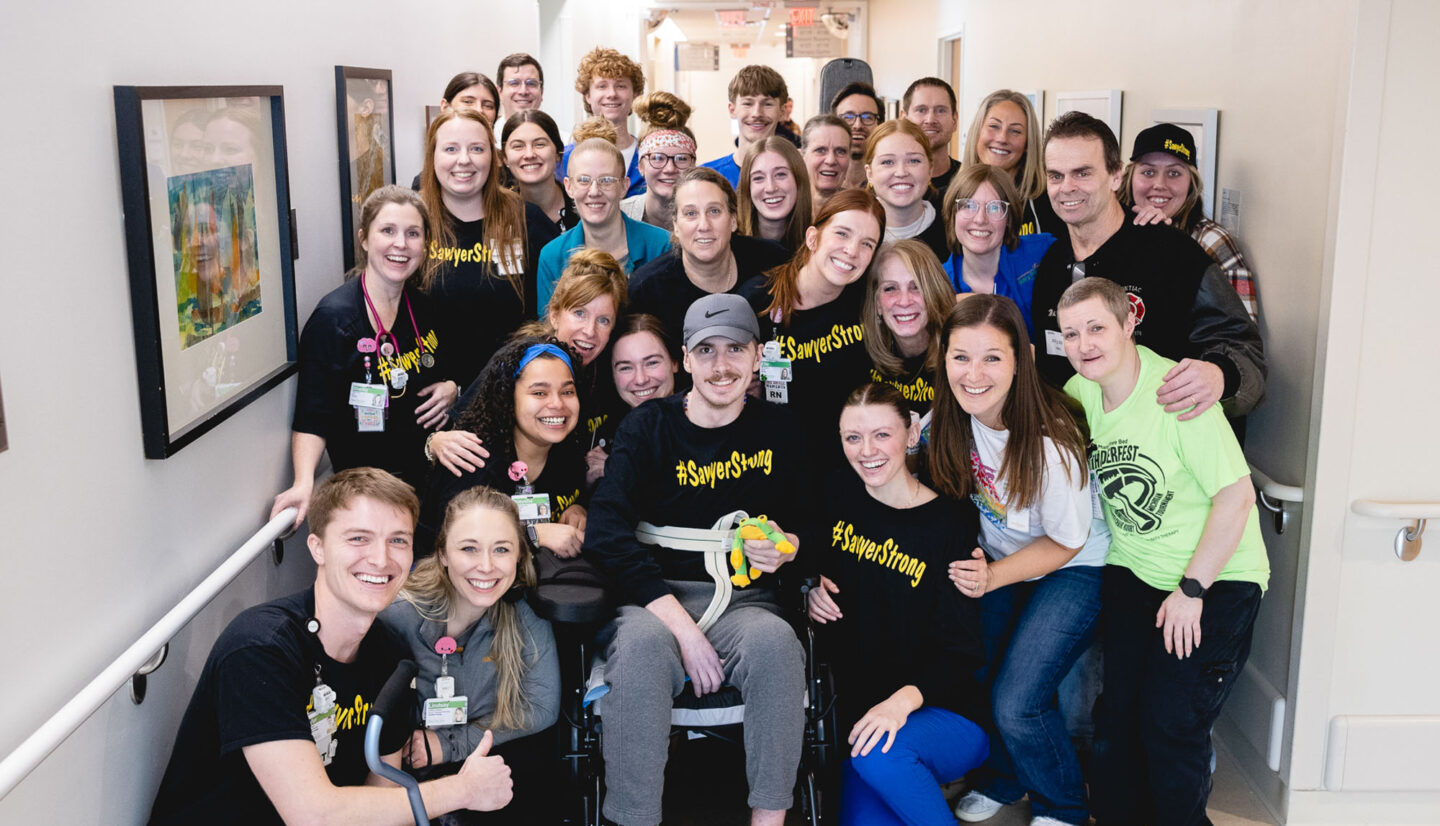Posted on August 9, 2019
Becky battles Guillain-Barre Syndrome with support from Mercy Health Muskegon, Mary Free Bed
On Dec. 23, Becky Ray was preparing for her family’s Christmas celebration when she felt tingling and numbness in her toes and fingers.
Alarmed, she went to the emergency room at Mercy Health Muskegon’s Hackley campus. Test results were inconclusive, and her symptoms were attributed to anxiety.
“I’m a super busy mom-on-the-go,” said Becky, 44. “I was working full time and balancing a full calendar of my kids’ sports, family life and activities with friends. I was healthy.”
But the following day, on Christmas Eve, the tingling and numbness had spread to her hands and feet, and her knee buckled when she walked. “It didn’t hurt, but it was alarming,” Becky said.
She returned to the ER, where a spinal tap detected abnormalities.
“The doctor said he believed I had Guillain-Barre Syndrome and that I would need to be admitted and start IVIg treatment right away,” Becky said. IVIg is high-dose immunoglobulin therapy, which is an infusion of antibodies that lessens the attack on the nervous system and can shorten recovery time.
Guillain-Barre Syndrome is a rare disorder in which the body’s own immune system damages nerves and causes muscle weakness. In some severe cases, it results in paralysis.
That’s what happened to Becky. Her symptoms began to worsen and within a week of being admitted to the Intensive Care Unit, Becky was paralyzed from her neck to her toes. She also couldn’t close her eyes completely and her ability to swallow was impaired.
“I had to be placed on a special diet for a while, eating only pureed foods and thickened liquids,” she said. “My breathing was closely monitored, and the ICU nurses were preparing me in case I needed to be placed on a ventilator, as GBS can affect the diaphragm and lungs. Luckily my symptoms started to plateau, and I avoided the ventilator. But the idea of this was terrifying to me.”
By mid-January, Becky was stable enough to be transferred to Mary Free Bed’s acute rehabilitation unit at Hackley. She worked with physical and occupational therapists as well as speech-language pathologists, slowly regaining function from the ravaging effects of GBS. Her team made her “feel human” – painting her toenails, braiding her hair, singing karaoke in her room, laughing, talking and bringing her treats.
“We celebrated every success,” Becky said. “Those were some of my darkest days, and I can never repay their kindness.”
After months of intensive therapy, she could stand with assistance and maneuver the halls in a wheelchair. Because she needed continued care and therapy on her journey back to independence, Becky chose Mary Free Bed’s Sub-Acute Rehabilitation Program. Located on the fifth floor of the hospital’s Grand Rapids campus, the program provides customized, comprehensive rehabilitation and skilled nursing to help patients recover from serious illness, injury or surgery.
She arrived on April 1, 14 weeks after being diagnosed.
“When I first came to Mary Free Bed, I could barely stand without lots of assistance,” Becky said. “I needed help with the most basic living skills, such as showering and getting myself dressed.”
For the next two months, Becky continued weekly IVIg infusions and participated in vigorous physical and occupational therapy to build strength and stamina.
“My therapists helped restore confidence in my abilities and encouraged me to work hard toward my therapy goals,” said Becky, who progressed to walking with a walker, using stairs and transferring in and out of a car.
Since she graduated on May 31, Becky has continued outpatient therapy and looks forward to what the future holds. She’s most thankful to be home in Muskegon with her husband of 15 years, Don, and her boys, Finn, 14, and Brody, 7.
“I’ve been trying to make up for lost time by spending as much time as possible with my kids,” Becky said. “It was great to celebrate their birthdays at home, and we’ve been playing a lot of board games and cards.”
She’s anxious to get back to playing beach volleyball, going to concerts, traveling and returning to work. A social worker for the Muskegon County Department of Health and Human Services, Becky licenses foster care homes.
“I hope to overcome GBS and return to my normal life at some point,” she said. “I want to go back to work and enjoy all the things I did before I got sick. I know the recovery process can be very slow and that not all patients recover completely, but it’s my goal to be patient.”
Patience is a reluctant expertise Becky developed during her more than three-month hospital stay. She also learned how much people care about her.
“I’m passionate about my friends and family – I wouldn’t have made it without them,” she said. “The amount of encouragement, support and love I’ve experienced has been astronomical. I had old friends, co-workers and staff from my children’s school come to visit me and send cards. And I made new friends along the way that I will share a bond with forever.”






